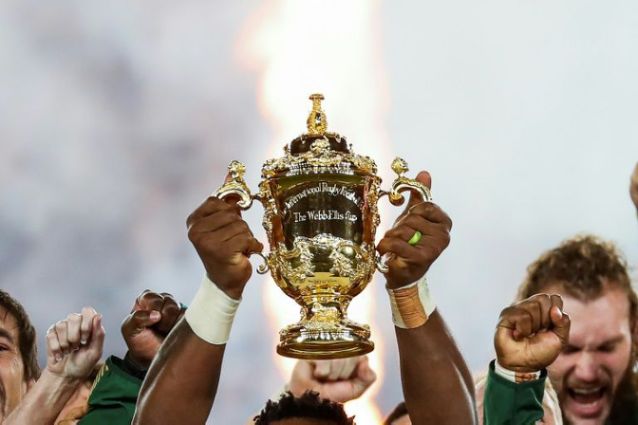LONDON : The 61-year-old Australian spoke to AFP as audit giant EY released its report, “The economic impact of Rugby World Cup 2019”.
The 2019 Rugby World Cup has left a “huge legacy” in Japan and its success should embolden countries such as the United States to bid for future events, says World Rugby CEO Brett Gosper.
Read Also – Djokovic slammed over coronavirus ‘horror show’
EY estimated that 46,000 jobs were created or sustained for the tournament and £4.3 billion ($5.4 billion) — a record for a Rugby World Cup — was generated in economic output.
Gosper said “Japan 2019 was one of the greatest, maybe the greatest, of all World Cups” and exceeded all expectations.
“For Japan there is a huge legacy,” he said via video call. “There was an uptick in participation at schools, younger audiences on social media and, on TV, 58 million watched the Scotland v Japan game. It shows it was a major national ubiquitous event for all age groups.”
Gosper said the tournament had attracted swathes of new players to the sport in Asia and also created a new source of income alongside traditional markets.
“The legacy is beyond stadia facelifts, gym equipment and higher participation — the legacy for World Rugby is that it also created the third-biggest broadcast market,” he said. “That is a legacy for all rugby because our revenues get pushed around 120 unions.”
Gosper said the rugby world had traditionally been reliant on France and Britain and the challenge now was to sustain a third sizeable market.
“That is the reason we went to Japan and Asia, was to create new markets and participation,” he said. “It gives us a bigger commercial footprint to put back into other areas of the world.”
Gosper believes the success of Japan 2019 will give World Rugby chiefs confidence that rugby-playing nations with a similar profile can host the tournament.
USA Rugby filed for bankruptcy earlier this year but Gosper said that did not rule the United States out of bidding for the 2027 or 2031 tournaments.
“I am sure that their time will come,” he said. “The bankruptcy does make it slightly more complex but everything is more complex in the world now in both the short term and medium.
“We are looking at 2027 and 2031 (both bids will run at the same time). To put on a Rugby World Cup it requires financial effort beyond any one union.
“England and France have economic muscle from their governments and in the USA case it would be more private concerns. Hopefully they will be able to put in a bid for one of the two RWCs. It will be interesting and a great compliment to the sport that the US are interested in hosting a RWC.”
The Chinese market remains elusive but Gosper hopes that success at Olympic level — their women’s sevens team qualified for Tokyo 2020 — could have a positive knock-on effect.
“China is still an ambition for rugby,” he said. “It is a complex market, very decentralized. However, it is a very strong Olympic country — the women’s sevens team qualified for the Tokyo Olympics. So it would not take a lot to ignite something very special in China from an Olympic point of view.”
For Gosper, the pool match between Japan and Scotland in Yokohama — threatened by Typhoon Hagibis — stands out as a highlight from the 2019 tournament.
Japan won to qualify for the quarterfinals.
“To me it was really the high point of the tournament emotionally,” he said. “Fifty people stayed overnight at Yokohama Stadium to ensure it was up and ready for the next day after typhoons raged through. Were they risking their lives? Possibly.
“They were certainly taking risks to put themselves out to ensure the game was put on and the spectacle put on was the real high point.”


![[商品価格に関しましては、リンクが作成された時点と現時点で情報が変更されている場合がございます。] [商品価格に関しましては、リンクが作成された時点と現時点で情報が変更されている場合がございます。]](https://hbb.afl.rakuten.co.jp/hgb/1bd0155c.626a736d.1bd0155d.330f7630/?me_id=1273476&item_id=15698109&pc=https%3A%2F%2Fthumbnail.image.rakuten.co.jp%2F%400_mall%2Frcmdse%2Fcabinet%2Fl701%2Fl7-4549995082432.jpg%3F_ex%3D240x240&s=240x240&t=picttext)


